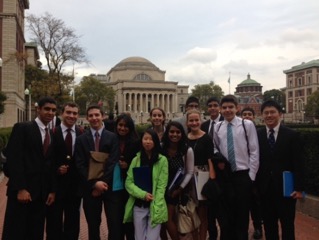
Jourdan Smithwick and her delegation.
After 5+ years of involvement in Model UN, I can confidently say that it has been at the forefront of my academic career thus far. My experience has been quite unique, marked not only with leadership positions and participation in the 2013 Best Delegate MUN Institute at Georgetown University but also the fostering of a mentoring program with my middle school after graduating.
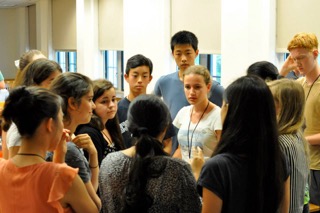
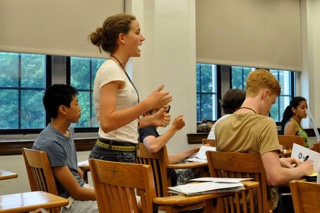
Each week, I teach lessons to the middle schoolers about parliamentary procedure, speaking style and research methods, helping to prepare them for the culmination of their hard work throughout the year, the UNA-USA Global Classrooms Middle School Model UN Conference.
Oriented both globally and interpersonally, Model UN truly allows delegates to not only explore and analyze broad issues, but develop intimate communication and conflict resolution skills. This idea of general and specific applications is the way in which Best Delegate has impacted Syosset Model UN through my participation in the MUN Institute.
Going into the program, my main goal was to take what I was taught and use it to not only personally improve my abilities but develop my lessons to the middle schoolers, helping them to improve as well. This goal was met and far surpassed as thanks to detailed lecture notes whilst in the program, I was able to better organize and teach lessons, allowing me to give back to the Syosset Model UN program which has shaped so much of my character.
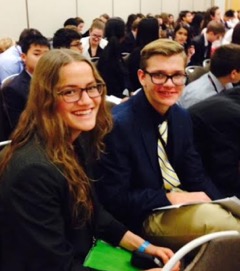
What is seen by some as but an extracurricular activity is akin to a lifestyle for others, through Model UN discovering not only the art of public speaking and constructive expression of opinion but truly a better sense of self and the role one plays in the committee of life. Integral to success in the “real world,” this is in my opinion the true benefit of Model UN for young people, and a concept I work to instill in the middle school students.
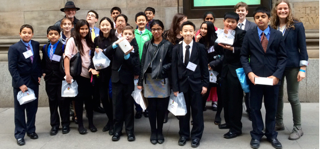
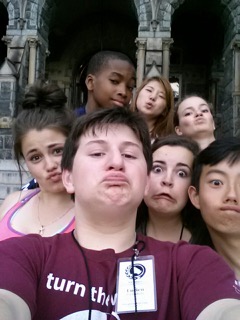
After teaching the basics of Model UN to the middle school team, each year without fail, at least one eager student asks: “…but how do I win?” To this ever-important question, I often have great difficulty responding, for as any experienced delegate knows, awards are often extremely subjective, no concrete strategy or style bringing home gavels unfailingly. However, at least in my experience, power delegates tend to prevail, a concept I occasionally find myself frustrated with in committee.
What should be a negotiation based activity with the common goal of resolution can be so easily marred by the motives of a select few delegates who change policy based on personal beliefs and make self-serving strategy choices. Am I being idealistic or impractical in thinking that the focus of diplomacy, even if simulated, should not be awards but global advancement?

Ultimately I always remind myself, this inconsistency parallels in life, no different personality able to be deemed better than another just as no Model UN strategy can necessarily be superior to another. Just as in life, the “nice guy” in Model UN doesn’t always have to finish last, awards not the only indication or validation of success.
If I have learned one thing from my involvement in Model UN as well as my participation in Best Delegate’s MUN Institute, it has been that playing the game simply to win and making sacrifices along the way to do so is far less rewarding than doing right by myself and my country policy and often having that work out in terms of awards. Make of it what you will, but in the long run a drawer of gavels will undoubtedly impact you far less than an opportunity to learn.
To learn more about the MUN institute, click here.
(This conference recap was provided by Jourdan Smithwick, BD Summer Institute Alumni)

